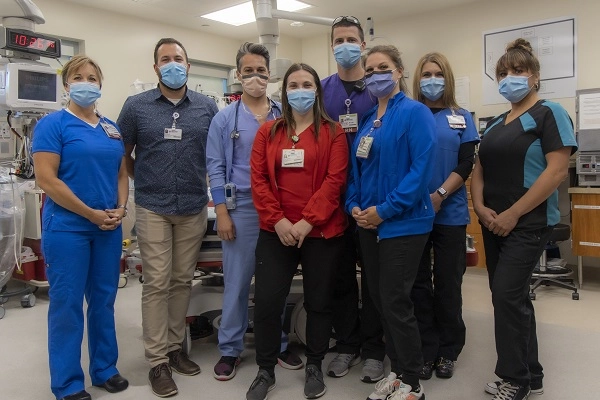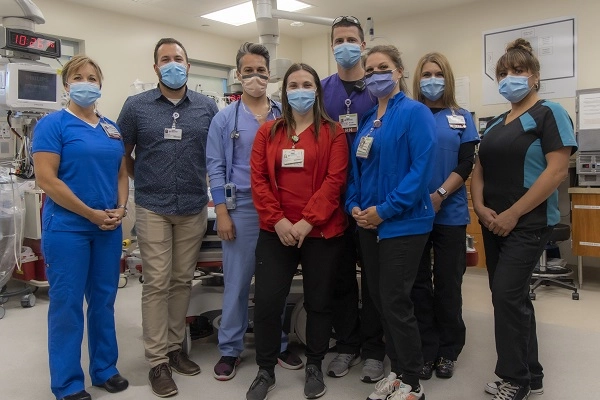Caring for emergency caregivers: Foundation creates successful resiliency program to fight employee burnout


Front-line staff at the Salem Hospital emergency department are exposed to traumatic incidents every day. Those experiences can cause “secondary traumas” for doctors, nurses and other hospital employees.
About 30% face severe burnout syndrome.
“There is an emotional cost to selflessly caring for people who are themselves traumatized and distressed,” said Amie Wittenberg, director of Salem Hospital’s emergency department, trauma program and psychiatric services. “Repeated crises lead to compassion fatigue, which can drive a sense of low accomplishment, exhaustion or inability to cope, or worthlessness — to the point of leaving the department, hospital or even their profession.”
Evidence shows that 86% of the emergency department staff have experienced at least one of the three classic symptoms: exhaustion, depersonalization or reduced personal accomplishment.
In July 2019, emergency department leaders created a one-year pilot program by partnering with local crisis chaplains to provide on-call and regular rounding support for doctors and employees. The team also created a training program for staff about stress management, compassion fatigue, vicarious traumatization and team resiliency.
The Salem Health Foundation saw that need, and invested $57,000 for what became the Salem Health Emergency Department First Responder Resiliency Program.
In its first few months, emergency department leadership saw significant results:
- The staff’s professional resiliency and job satisfaction scores jumped from 39% to 79%.
- The staff turnover rate also dropped by nearly 50% — from 14% down to nearly 7%.
Leadership also received a stream of positive feedback:
“This literally has kept me in this job! Thank you, Salem Health Foundation, for loving us in the emergency department through your generous support!”
“I feel this program is critical to front-line caregivers and specifically our mental health. It’s a wonderful way to support our department.”
“I had a patient die from a critical incident and it was helpful to have a chaplain to debrief with, so I could pick up and successfully care for my next patient.”
“Thanks for your commitment to us during our hard times — and just being present. Sometimes just sitting and having a conversation is really what I need to catch my breath and fill my ability to continue to serve.”
“I contacted our staff resiliency chaplain and he made a world of difference. I am EXTREMELY thankful for having this service available to us.”
Ralph Yates, DO, Salem Health chief medical officer, said: “Salem Health and the Salem Hospital emergency department leadership team are committed to creating a culture of resiliency. This work demonstrates how our partnership with the Salem Health Foundation helped us deliver improvements to employee resiliency and emotional health. Clearly, the work thus far indicates this is an essential and useful investment in improved training and better support for self-care.”
Wittenberg added, “Individual resiliency contributes to a department’s culture. However, we recognize that the team is what drives, builds and sustains a true culture of resiliency.”
Innovative efforts like the Salem Health Emergency Department First Responder Resiliency Program would not be possible without the support of those who generously donate to the Salem Health Foundation. Learn more at www.salemhealth.org/donate.